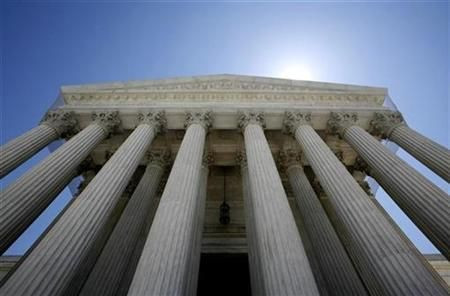Senate panel backs patent overhaul bill

A bill to reduce the likelihood of massive damage awards in patent disputes took a step forward on Thursday with approval by the Senate Judiciary Committee.
The committee voted 15-0 to back the legislation that would give judges a major role in determining how important a particular patent is to a product, so that infringing minor patents would not lead to huge damages.
The bill also gives patents to the first inventor to file, rather than the first to invent, making the patent application process easier for companies who apply for patents in multiple countries.
The U.S. House of Representatives Judiciary Committee has not yet begun work on a companion bill.
Big technology companies initiated a push several years ago for patent reform because of expensive litigation, and even more expensive damages if they lost what many viewed as unfounded lawsuits.
Some big tech companies have dropped their support.
This year, Microsoft, the Pharmaceutical Research and Manufacturers of America and the Biotechnology Industry Organization support the patent legislation, while Dell, Cisco and others oppose it.
The committee discussed, but did not vote on, a proposed amendment by Senator Charles Schumer concerning business-method patents. The Supreme Court last year rejected a way to hedge energy costs but declined to shut the door on business method patents entirely.
Schumer's amendment would have allowed companies sued over such patents to ask the U.S. Patent and Trademark Office to declare them invalid without resorting to litigation.
I feel very strongly about this issue, said the Democrat from New York. He could not guarantee he would vote for patent reform once it hit the Senate floor if it was not in the bill.
Perhaps the most familiar example of a business-method patent is Amazon.com's one-click purchase patent.
The judiciary committee also discussed at length, but did not vote on, a proposal by Senator Tom Coburn to end fee diversion.
The patent office sometimes brings in considerably more money in fees than it is allowed to use in its budget, angering companies which can wait years to get a patent approved due to a shortage of patent examiners.
Somebody's paying a fee. That fee ought to be used for that purpose, said Coburn, a Republican from Oklahoma.
Senator Orrin Hatch agreed with Coburn on fee diversion, calling it despicable. It's (the patent office) one of the few agencies in government that can guarantee job growth in every sector of society, said the Republican from Utah.
A patent reform bill passed the U.S. House of Representatives in late 2007, but stalled in the Senate.
Other provisions in this year's 99-page bill aim to prevent bad patents from being issued by allowing third parties to provide information on why an application should be rejected.
The U.S. Patent and Trademark Office has asked for the right to set its own fees in order to hire more examiners and upgrade technology so it can chip away at a massive backlog of patent applications.
The bill would give the patent office authority to set fees, but requires that the smallest applicants get relief on application fees.
(Reporting by Diane Bartz; Editing by Tim Dobbyn)
© Copyright Thomson Reuters {{Year}}. All rights reserved.



















